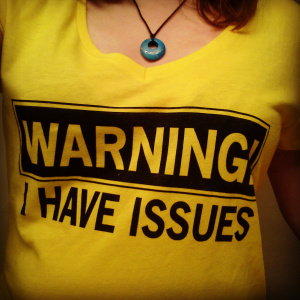Editorial Note: The following is reprinted with permission from Eleanor Skelton’s blog. It was originally published on November 30, 2014.
 Like ships in the night
Like ships in the night
You keep passing me by
We’re just wasting time
Trying to prove who’s right
And if it all goes crashing into the sea
If it’s just you and me
Trying to find the light.
– Mat Kearney, Ships in the Night
So much religious noise, all around me…
“No, Eleanor, you have to receive the Holy Ghost and speak in tongues, and be baptized in my church, because it’s the only true Pentecostal church in Colorado Springs. I know you’re a Christian, but you aren’t Apostolic.”
“I’m a five point Calvinist. Human beings are utterly depraved and cannot be saved except by prompting of the Holy Spirit.”
“You don’t love Jesus, because you don’t obey his commandments.”
…I live in Colorado Springs, ok? Dubbed the Christian Mecca, due to Focus on the Family, Compassion International, the Navigators, and New Life Church.
And I have friends from nearly every denomination, and many friends of other beliefs.
Since I’m friendly and very extroverted, I often get well-meaning people trying to convince me of this or that doctrine. Or try to get me to go to their church when I’m not seeking another place to attend. My friend Cynthia B. calls this “church cannibalism.”
It all feels the same at the bottom – do you see me, do you value me as an individual? Do you care about me outside of earning brownie points for your church or god?
And if I don’t agree, then more convincing is in order.
It’s like the opening lyrics to Relient K’s song “Failure to Excommunicate.”
It’s the principle, it’s the issue / that your principle would dismiss you. / Because you don’t fit into that All-American Box, / that coffin created for creative thought.
I’m not denying that objective truth exists. But as imperfect humans, how do we know that we are properly interpreting that truth?
Academic research in 2009 indicates that humans have a strong tendency to make God agree with us, to anthropomorphize our deities.
Shouldn’t Christians be different, if we believe the verse we quote so much:
“For who has known the mind of the Lord, or who has been his counselor?”
I think this is where fundamentalism for any belief becomes Pharisaical, looking for outward signs when no one knows anyone else’s heart.
One of Relevant magazine’s latest pieces, “Wrestling with Faith and Doubt,” addresses this:
“We never find Jesus calling someone a heretic because they interpreted an Old Testament story figuratively when it was supposed to be read literally or vice-versa.”
 And the writer points out that in these details, we miss the endgame of Jesus’ message, loving God and our neighbor.
And the writer points out that in these details, we miss the endgame of Jesus’ message, loving God and our neighbor.
What if we were all just truth-seeking together, admitting sometimes we get it wrong? I admire people in the church who can say their well-meant methods didn’t work.
One of my pastor friends said at a conference last spring:
“I have a master’s in Christian education, and I thought discipleship was you get a bunch of people together and you do a Beth Moore Bible study, or a Henry Blackaby Bible study, and that’s what I did for years, but I was wrong.”
He discovered discipleship in community, bonding with others, not rote memorization.
Most of my spiritual journey has been finding where I got tangled, reaching for the light on the other side.
Rather than forcing change on everyone else, I’d rather seek out where I am wrong, to find spiritual healing for myself. The plank-in-the-eye metaphor is actually helpful here.
Because, like my pastor friend said about following Jesus:
“Some people make this complicated. It’s real simple. It’s so simple, it’s subversive.”
I crave more of this subversive simplicity.





